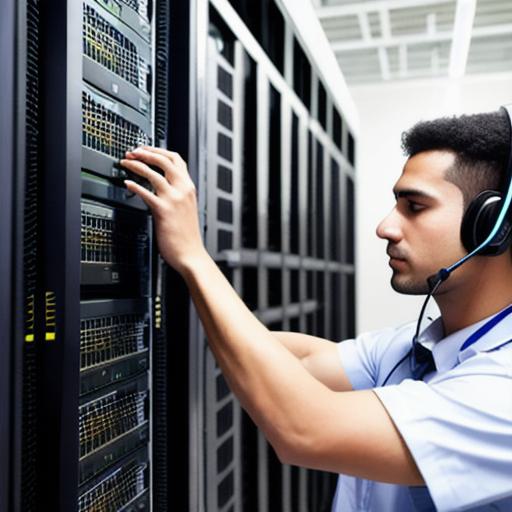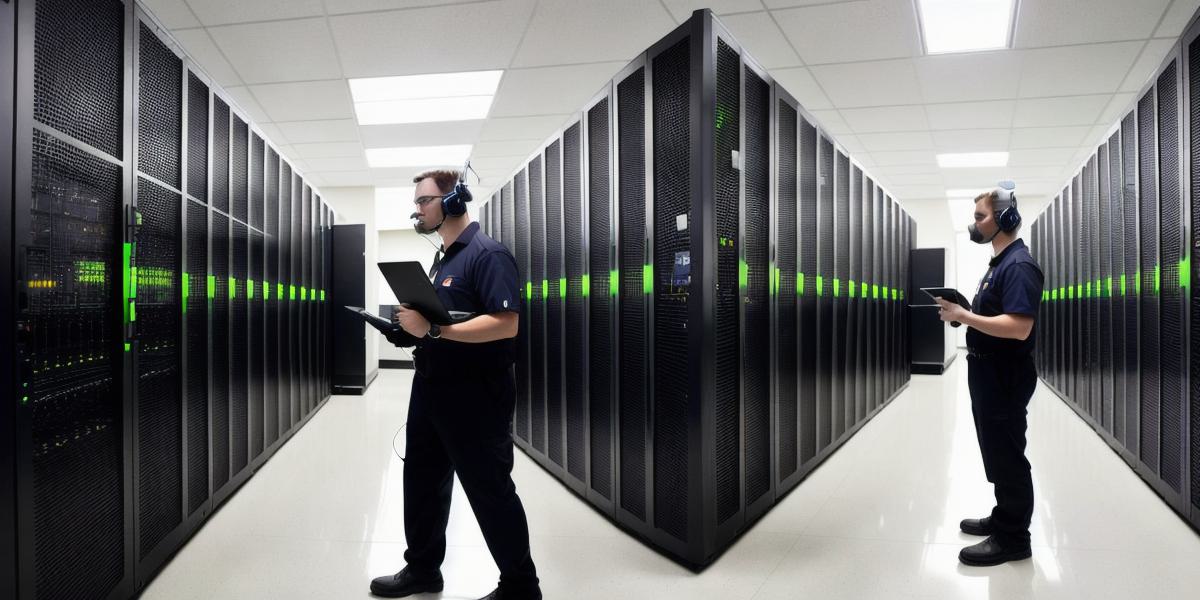Noise pollution in data centers can have detrimental effects on both hardware performance and employee productivity. Let’s explore how this occurs.

Hardware Performance Impact
Data centers house a multitude of electronic components, including servers, storage devices, network equipment, and cooling systems. These components generate heat and emit electromagnetic signals during operation. Noise pollution can interfere with these critical functions.
Electromagnetic Interference (EMI): Excessive noise in the environment can cause EMI that disturbs electronic circuits’ proper functioning, leading to data errors, system crashes, or even hardware failure. For instance, a loud air conditioning unit could disrupt the signals sent between servers, resulting in incorrect data transmission and potentially catastrophic consequences for businesses.
Thermal Effects: Noise pollution can also impact the cooling systems’ efficiency. Workers may adjust cooling equipment to reduce noise levels instead of optimizing for temperature control, leading to less efficient cooling and possible hardware overheating.
Employee Productivity Impact
Data centers are often large facilities with many employees working in close proximity. High levels of noise pollution can negatively affect their well-being and productivity.
Stress: Constant exposure to loud noises can lead to stress, anxiety, and fatigue among employees, reducing their focus and motivation, which ultimately impacts overall employee productivity. For instance, a study by the National Institute for Occupational Safety and Health (NIOSH) found that noise levels above 85 decibels (dB) for more than eight hours per day can lead to hearing damage and other health issues, such as stress and sleep disturbances.
**Communication:**
In a data center environment, clear communication between teams is crucial for maintaining optimal performance. Noise pollution makes it difficult for employees to effectively communicate with each other, leading to miscommunications, misunderstandings, and inefficiencies.

In conclusion, data center noise pollution can significantly impact hardware performance through electromagnetic interference and thermal effects while also negatively affecting employee productivity due to stress, communication challenges, and potential health issues. Implementing proper sound insulation measures, such as noise barriers, acoustic panels, and vibration-absorbing flooring, is essential for mitigating these risks and creating a more productive and efficient data center environment.
